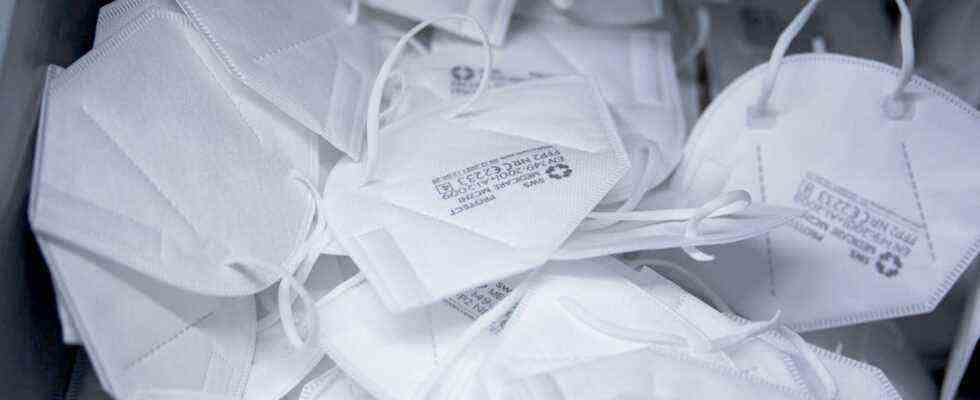Status: 01/29/2022 09:21 a.m
According to the industry association, domestic manufacturers of protective masks usually get nothing when public authorities award contracts. Politicians have demanded and promoted the development of local production, but now I buy in Asia.
Germany should make itself more independent of supply chains and foreign manufacturers. That was the demand from politicians shortly after the start of the pandemic. She called on entrepreneurs and companies to ramp up the German production of masks. This was funded with 90 million euros in tax money.
But after the quick start, the companies are already standing still again. Although the demand is still high, the public sector is not taking action – at least not in Germany. Instead, the federal, state and local governments are buying Asian masks again. The reason: The tenders usually go to the provider with the lowest price.
A question of price?
German masks are not much more expensive. Depending on the number of pieces, an FFP2 mask costs between 20 and 25 cents in this country. That’s five to ten cents more than the Chinese ones. Asian manufacturers are therefore more likely to be awarded the contract, despite a domestic production capacity of more than four billion masks per year.
“This is absolutely absurd behavior on the part of the federal government,” criticizes Thorsten Schulten from the Hans Böckler Foundation. “Everyone agreed that, for example, we need more domestic mask production again. The state has spent subsidies on it and now that this production is back, the companies are there, says the state, now we’re no longer interested in it, now let’s buy the cheap masks from Asia.”
Protest in front of the Bundestag
Many see a need for action in politics. Till Wolfram from the Berlin manufacturer Tungsten Consulting also feels let down: “Politicians had called for independence in the production of protective masks in Germany, and it cannot be that the industry is now being left alone and with it the established industry is destroyed, so to speak.”
To vent their anger, German mask manufacturers recently gathered in front of the Bundestag. In their luggage, they each had a box of German masks for each MP and a clear message: You can produce, but the public authorities don’t buy.
It doesn’t have to be like that. “There is no provision in procurement law for the price to be the sole award criterion or only to have a certain weight,” says the Federal Ministry of Economics. This means that the public authorities can also use other criteria. Susanne Ferschl, member of the Bundestag for Die Linke, calls this a “huge waste of tax money” and accuses former Health Minister Jens Spahn of not having fulfilled his “purchase guarantee”.
Medical products “Made in Germany”? German authorities prefer to import cheaper from China
Christiane Cichy, MDR, plusminus, January 26, 2022
No change in public procurement law in sight
But politicians don’t want to do anything about it. This is from a survey by the ARD business magazine Plus minus out. The SPD and CDU/CSU did not want to comment on this, according to the FDP, there was no need for action. Only the Greens, Left and the AfD take the position that improvement is necessary.
“This is nothing less than a culture change in public procurement – and there has never been one before,” says Green politician Sandra Detzer. “Even if it is not implemented immediately, that is the goal that this coalition has: Public procurement must not work according to the principle: greed is cool.”
Example France
The proponents of a changed public procurement law call France as a role model. There, too, 97 percent of the masks were initially obtained from abroad. The Ministry of Health then responded with a decree that forced public authorities to obtain all masks from France or the EU. In addition, only 25 percent of the prize should be included in the award process.
“We learned from the past when we didn’t have masks for months because we were dependent on Asia,” says Christian Curel of the French Mask Association. “Now we support our own industry by public buyers also having to pay attention to short delivery routes, environmental protection and quality.” But German politics has so far been cautious about such measures.
The ARD program Plusminus reported on this topic on January 26, 2022.

